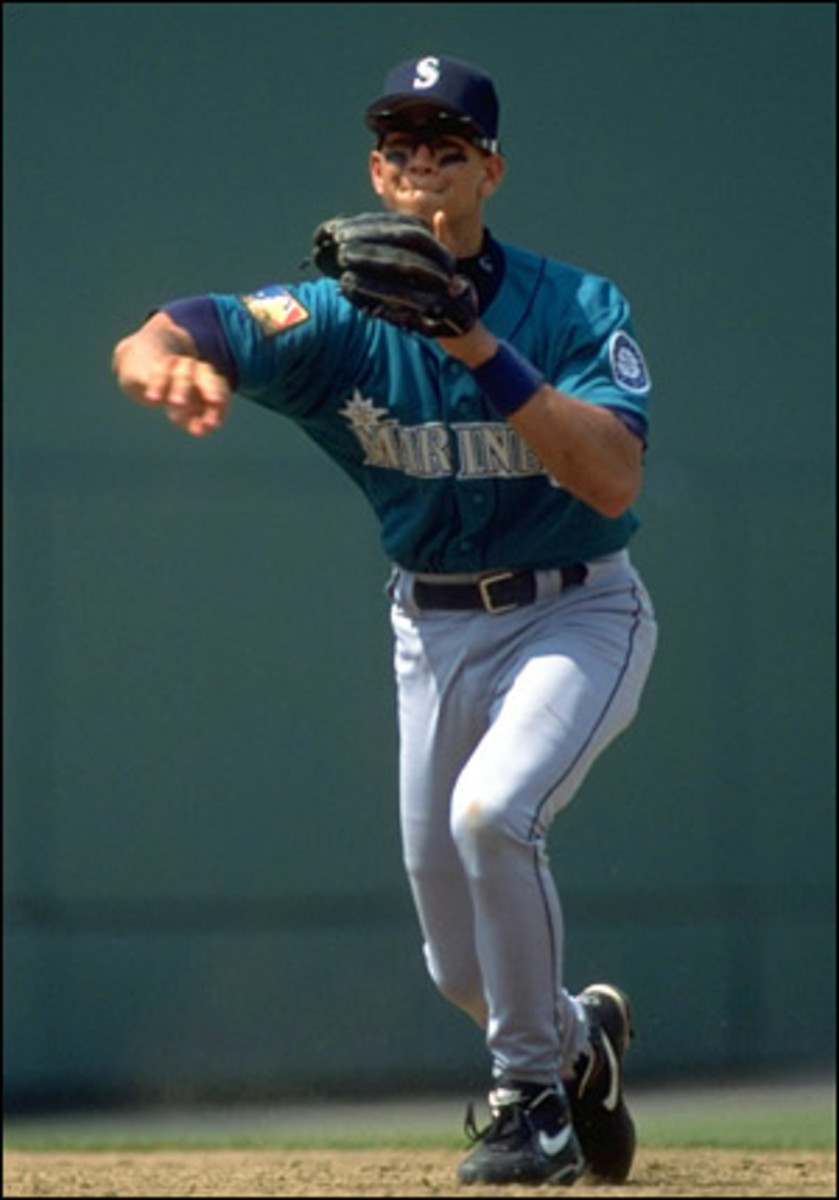
It was inevitable
He instructed his agent, Scott Boras, to work on a deal that would keep him in Seattle. Boras asked for $14 million over four years. The Mariners countered with $7 million for four years. Boras balked. He knew Rodriguez could do better in arbitration.
But Rodriguez didn't care. Rejecting counsel, he signed for four years, $10.5 million. "Scott did a great job for me and in doing his job he told me I could have gotten a lot more," Rodriguez told reporters afterward. "But I didn't want more. I wanted to be happy."
It is hard to reconcile that idealistic young shortstop with the jaded mercenary negotiating for himself right now. Rodriguez has crawled back to the Yankees, not because he is afraid of leaving, but because he is afraid no one will pay him as much.
For Rodriguez, this looks like a business move. But it may also be one of the great PR moves in baseball history. By initiating contact with Steinbrenner and opening negotiations without Boras, by admitting his mistakes and pledging his allegiance to the Bronx and accepting a slightly lower salary, Rodriguez can emerge from this winter both rich and sympathetic.
Granted, Rodriguez looked presumptuous and greedy when he opted out of his $252 million contract, with Boras reportedly suggesting that the Yankees would need to scrape up $350 million just to sit down and talk with him. But Rodriguez can absolve himself of that faux pas by using the hot-stove strategy so popular with major league general managers: Blame Boras.
If that doesn't go over, Rodriguez can try the next-best tactic: Apologize. Fans like their superstars fallible. Yankee fans have always complained that Rodriguez does not seem real. His teeth are too white, his skin too clear, his pose too rehearsed. Now, finally, he appears vulnerable. And he will likely be cheered at Yankee Stadium this spring in a way that he never has before. (If he strands runners in the playoffs, though, expect the choker chants to begin anew.)
Even by Yankee standards, this has been a wild off-season, and it is not yet Thanksgiving. The club fired Joe Torre, replaced him with Joe Girardi, and pledged not to negotiate with Rodriguez after his infamous World Series opt-out announcement. Then the Yankees started looking at available third basemen, namely Mike Lowell and Miguel Cabrera. They missed Rodriguez.
Meanwhile, Rodriguez was looking at teams that might want to sign him, namely the Angels and the Dodgers. They did not exactly sound eager to meet his $350 million entry fee. All of a sudden he missed the Yankees. The stage was set for a fuzzy reconciliation.
Looking back, it was predictable that these two would rekindle. They need each other dearly. Without Rodriguez, the Yankees are playing for second behind the Red Sox. And without the Yankees, Rodriguez is in danger of becoming the next Barry Bonds, a record-setting Hall of Famer who can never hope to win a World Series.
No team besides the Yankees can offer Rodriguez the salary he commands and still have enough left over to buy an All-Star supporting cast. Similarly, no player besides Rodriguez can offer the Yankees the muscle they need in the lineup to go along with the attention they crave in the tabloids. Even with all their problems, the two of them are much better off together than they are apart.
On their own, Rodriguez and the Yankees come across like a couple of Hollywood celebrities, bemoaning the mania around them. Then they get married just to multiply that mania. Their relationship may be dysfunctional, but it sure is fun for the paparazzi.
In a statement on his Web site on Wednesday, Rodriguez tried to sum up the tenor of negotiations, which sound more like ongoing couples therapy: "During these healthy discussions, both sides were able to share honest feelings and hopes with one another."
Translated, Rodriguez told the Yankees that he screwed up and begged for one more chance. The Yankees told Rodriguez that their feelings were hurt but they are willing to hug it out and try again. After all, they still need a power-hitting third baseman and Rodriguez happens to be the best one alive, postseason statistics excluded.
Rodriguez is smart enough to finalize this contract without too much help from Boras. It's simple, really: Take a little off his asking price so the Yankees can save some face. If Rodriguez wants to make some of that money back, he can always withhold it from the agent fee.




